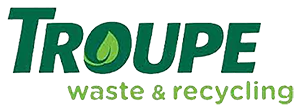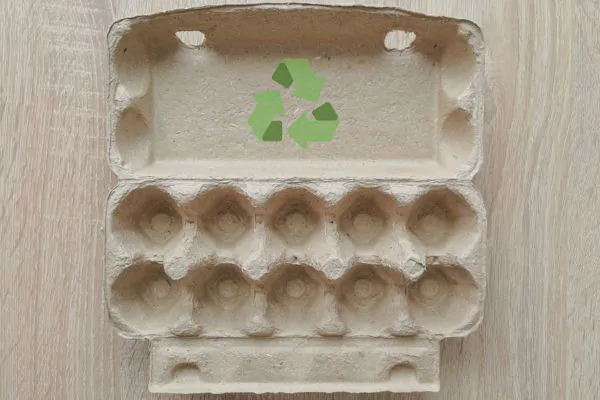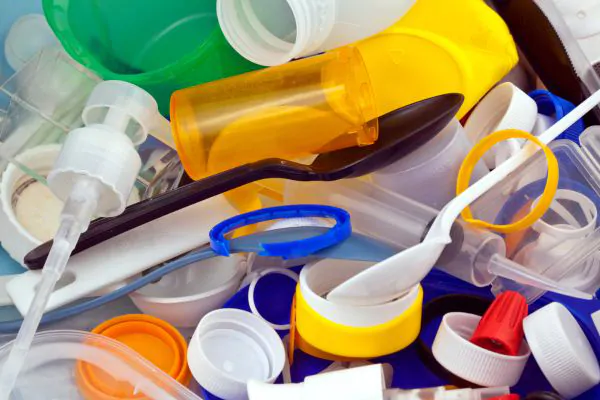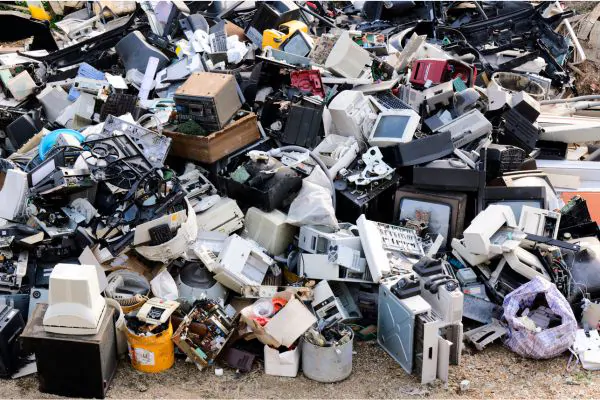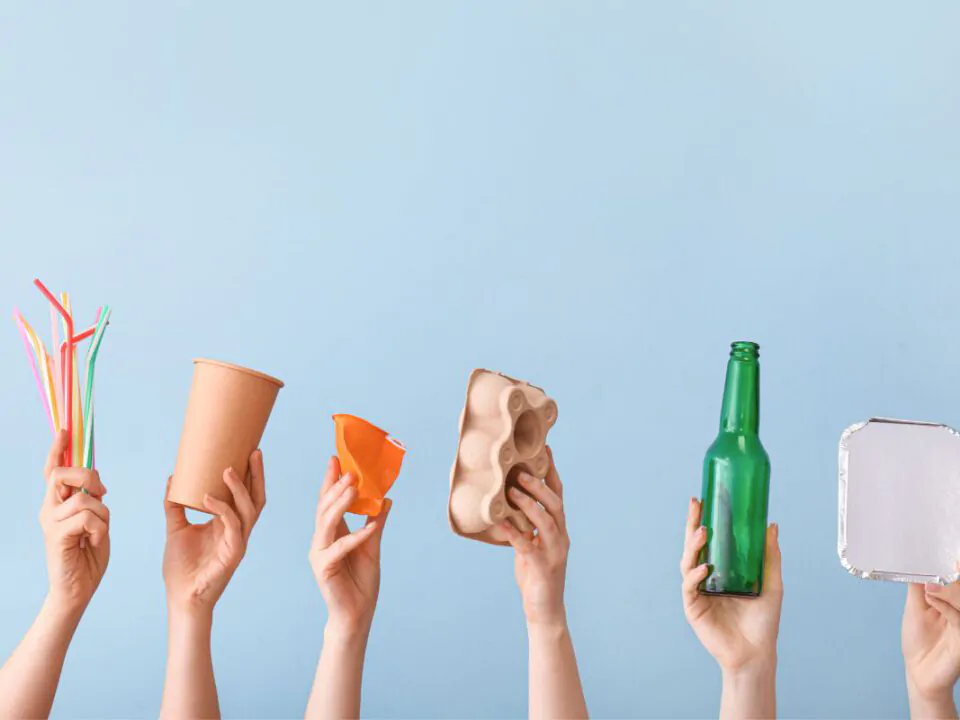Are Egg Cartons Recyclable? The Truth Behind Recycling Egg Cartons
Have you ever stood by your recycling bin, egg carton in hand, wondering if it belongs there? Here’s a fact: Egg cartons come in different materials, some more recyclable than others.
This blog will guide you through which egg cartons can hit the recycle bin and which should take a different route. Stick around to make your recycling efforts count!
What Are Egg Cartons Made of?
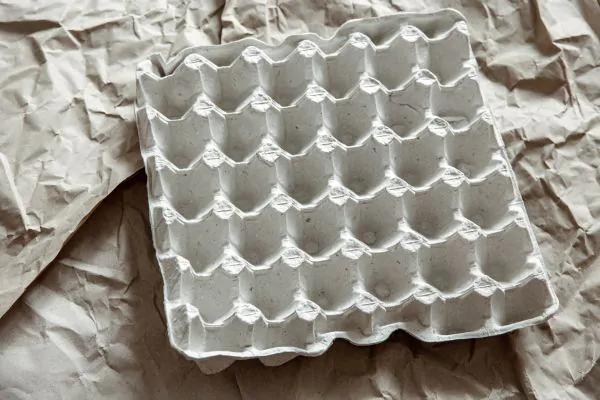
Egg cartons are made of various materials, including paper, plastic, and polystyrene/Styrofoam. Each type has recycling properties that need to be considered. Understanding what egg cartons are made of will help you make informed decisions about their disposal or recycling.
Paper egg cartons
Paper egg cartons are widely known for being environmentally friendly because they can be recycled. Made chiefly from cardboard, a renewable resource, is a great option for eco-friendly packaging solutions. These containers break down much more quickly than their plastic or Styrofoam counterparts.
You can place them straight into your recycling bin, but ensure they’re clean and free from any leftover egg residue to avoid contamination in the recycling process.
Many people also give paper egg cartons a second life by reusing them for various crafts or as seed starters in gardening projects. This dual potential for recycling and reuse makes paper egg cartons a preferred choice for reducing waste.
Remember to check with your local recycling guidelines, as rules can vary depending on where you live.
Plastic egg cartons
Moving from paper, let’s delve into plastic egg cartons and their recyclability. Most plastic egg cartons in stores are made of PET (Polyethylene Terephthalate) or other recyclable plastics.
If they are clean and dry, you can often recycle them with your regular recycling collection. Look at the bottom for a recycling symbol with a number inside; this tells you the type of plastic.
Removing any stickers or labels on the cartons before tossing them into the bin is important.
Recycling facilities process these containers differently from paper ones. They shred, wash, and melt them down to form new products. However, not all areas accept this plastic for recycling due to differing local regulations and facility capabilities.
Always check with your local services to ensure that you can recycle plastic egg cartons in your community. This step helps reduce waste and effectively supports recycling efforts.
Polystyrene/Styrofoam egg cartons
Shifting focus from plastic, we encounter another common type of egg packaging: polystyrene or Styrofoam egg cartons. Unlike their paper and plastic counterparts, these foam containers pose a significant challenge in recycling efforts.
Many local recycling programs do not accept them because recycling Styrofoam is complex and costly. This makes it hard for individuals wanting to ensure their egg cartons are correctly recycled.
Styrofoam’s non-biodegradable nature means it can sit in landfills for centuries without breaking down. This fact underscores the importance of seeking alternative disposal methods or opting for egg cartons made of more recyclable materials.
If you’re keen on reducing your environmental footprint, switching from using Styrofoam egg cartons to those that can be easily recycled or composted might be a step in the right direction.
Are Egg Cartons Recyclable?
Egg cartons made from paper can be recycled; ensure they are clean. Plastic egg cartons can be recycled in some areas, but check with your local recycling facility first.
Styrofoam egg cartons cannot be recycled due to their composition and should be disposed of in the regular trash.
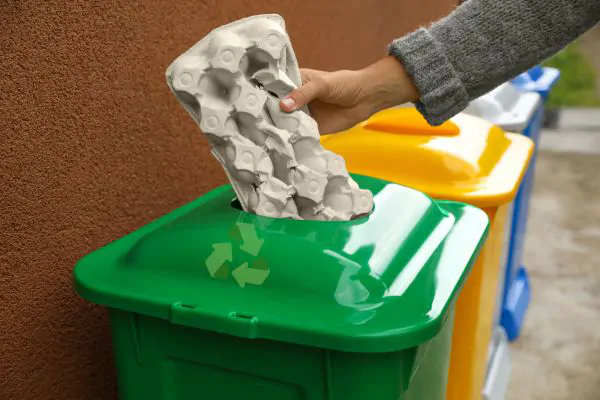
Recycling paper egg cartons
Paper egg cartons are indeed recyclable. To recycle them, place them in your paper recycling bin and other paper products. Ensure the egg cartons are clean and free from any leftover food or residue.
Removing plastic lids or inserts before recycling the paper egg cartons is essential, as these can contaminate the recycling process.
Recycling paper egg cartons helps conserve natural resources and reduce waste in landfills. Participating in the recycling process contributes to a more sustainable environment and helps support the production of new paper products.
Recycling plastic egg cartons
Plastic egg cartons are indeed recyclable. Once you have used all the eggs, rinse any remaining residue and allow it to dry. After that, toss the plastic egg carton into your recycling bin.
The local recycling facility will process it along with other plastics for reuse. By doing so, you contribute to reducing environmental waste and promoting sustainability.
When disposing of plastic egg cartons, always remember to check with your local recycling center about specific guidelines they may have in place for recycling plastics. Additionally, suppose your area does not accept plastic egg cartons for curbside recycling pickup. In that case, alternative drop-off locations or specialized programs might take them off your hands at no cost.
Why Styrofoam egg cartons are not recyclable
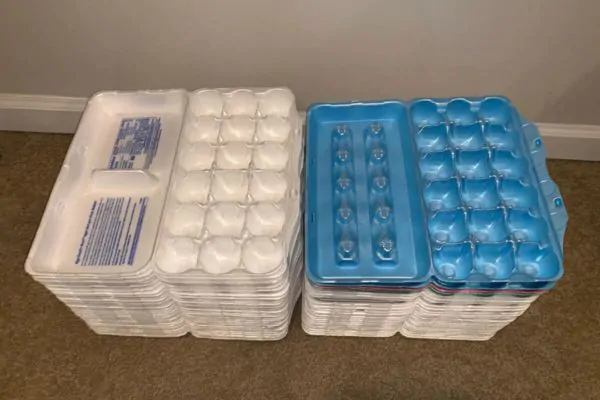
Styrofoam egg cartons are not recyclable because the polystyrene material does not biodegrade quickly and can contaminate recycling streams. When mixed with other recyclables, they can reduce the quality of recycled products.
By integrating into paper fibers during the recycling process, Styrofoam can cause issues in the machinery. Proper disposal of polystyrene egg cartons involves placing them in regular trash or finding specialized facilities that handle this type of waste.
It’s important to know that despite their non-recyclability, there are sustainable alternatives to Styrofoam egg cartons, such as paper or plastic ones, which can be recycled or reused, promoting an eco-friendlier approach.
Ways to Reuse Egg Cartons
Repurpose egg cartons by adding them to your compost or using them for home projects. Find creative ways to give these cartons a second life and discover more insightful facts about recycling practices.
Adding them to your compost
Tear them into small pieces to compost egg cartons and add them to your compost pile. The paper-based cartons will break down over time, providing valuable carbon to your compost.
In addition, the cardboard material in the egg cartons can help aerate the soil as it decomposes.
Furthermore, the compost from egg cartons and other organic matter can enrich garden soil or potted plants with essential nutrients. This process not only reduces waste but also contributes to sustainable gardening practices.
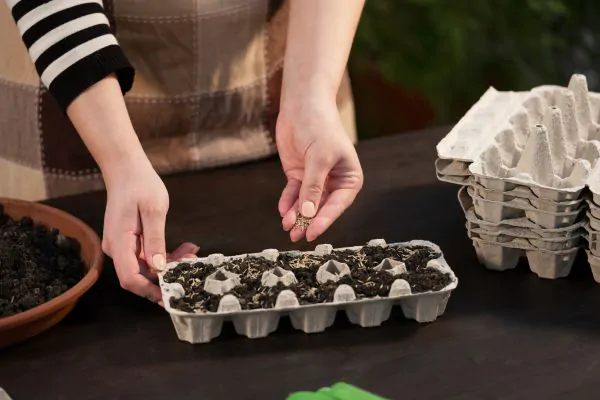
Using them for home projects
You can creatively repurpose egg cartons for various home projects. They make excellent seed starters for your garden or balcony, providing a cost-effective way to begin your gardening journey.
You can also use them as paint palettes for art projects or as organizers for small items like screws, nails, and beads in your workshop or craft room. Additionally, you can cut up the egg cartons and use them as protective packaging material when mailing fragile items.
By incorporating egg cartons into your DIY home projects, you reduce waste and find practical and sustainable uses for these seemingly disposable items.
Sorting Smarter: The Art of Clean Recycling
To properly recycle egg cartons, remove any leftover eggshells and rinse them before placing them in the recycling bin. Read more about handling your egg cartons effectively to help reduce waste.
How to properly recycle egg cartons
Check with your local recycling facility or waste management company to properly recycle egg cartons. When you’re ready to dispose of them, separate any plastic or metal parts from the paper carton before recycling.
To avoid contamination, rinse off any leftover food residue and allow the cartons to dry completely before placing them in the recycling bin. If your area does not accept egg cartons for curbside recycling, consider dropping them off at a nearby recycling center that can process paper products.
If your local facility doesn’t accept egg cartons for recycling, consider finding creative ways to repurpose them around your home instead. Doing so can reduce waste and contribute to a more sustainable environment while finding new uses for these versatile containers.
Other options for disposing of egg cartons
Consider donating your clean egg cartons to local farms, where they can be reused for packaging and transporting eggs. You can also check with community gardens or schools that use them in gardening projects. Plenty of creative ways exist to give your egg cartons a second life before disposing of them.
Hire Local Recycling Services Provider
Consider hiring a local recycling services provider to ensure your egg cartons are correctly recycled. Search online for nearby recycling companies that accept paper, plastic, or other materials for recycling.
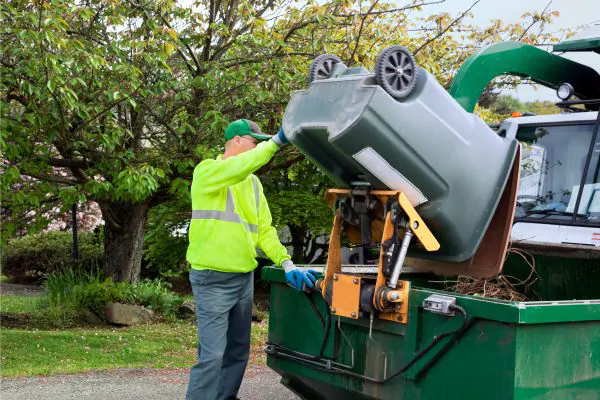
Contact them to inquire about their specific requirements for accepting egg cartons and any collection schedules they may have. Hiring a local service provider can help you streamline recycling and ensure your egg cartons are disposed of responsibly.
If you are still looking for a suitable local recycling service provider, consider contacting municipal waste management departments or community recycling centers for guidance on proper disposal methods for egg cartons.
Some cities offer curbside pickup programs designed explicitly for recyclable materials, including egg cartons. Be proactive in finding sustainable solutions for disposing of these items and contributing to environmental conservation efforts within your community.
